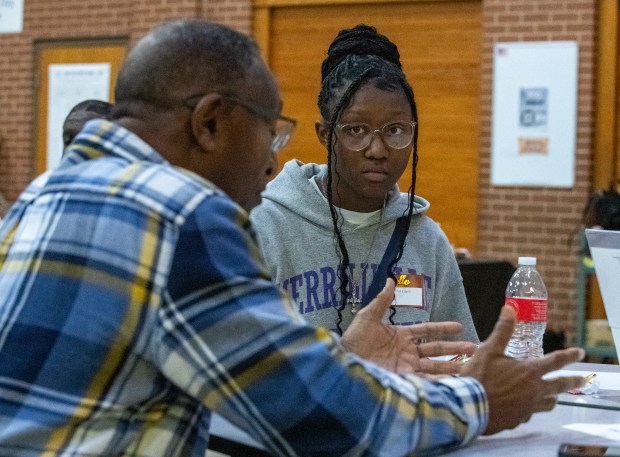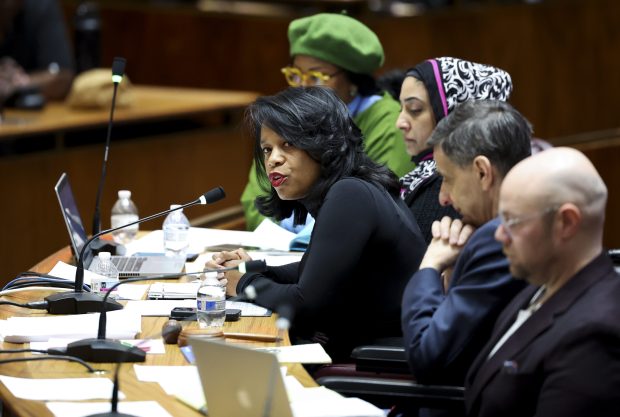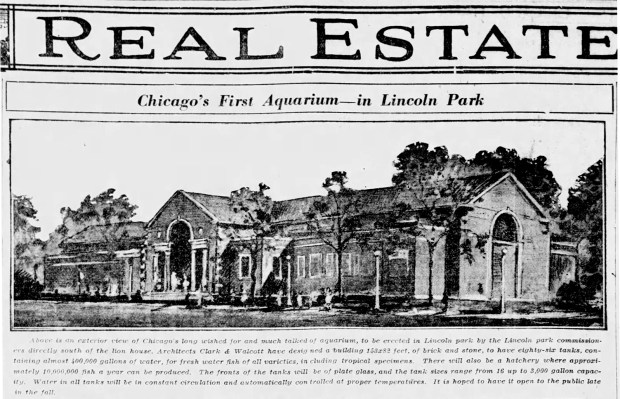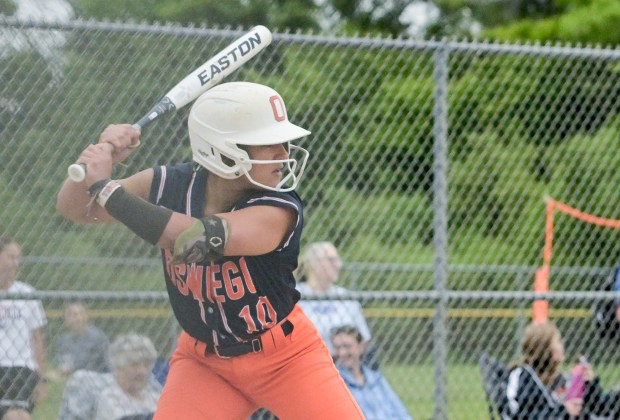Several Pierce Middle School students honed their public-speaking skills and shared their thoughts on current events for family and friends during a town-hall style gathering October 19.
Billed as the school’s inaugural Youth Town Hall, the event selected members of the school’s National Junior Honor Society and Community Partners Mentoring Students group to work with their mentors in a roundtable setting as well as opine on some of the issues they face today, such as book banning and the upcoming presidential election. And Panel moderator Delena Thomas, who’s also a Merrillville Community School Corp. Board member and the Seventh Grade Character Education Project Manager for CPMS, wasn’t lobbing softballs at the panelists.
“How do you think this presidential election will affect education going forward?” Thomas said as the five panelists — Jordyn Triplett, Imani Royal, Hailey Knight, Amya Davis and Schuyler Weatherspoon — gathered their thoughts.
“These kids are billed as leaders, and it’s a big jump for them to go to high school from middle school,” Thomas said. “We want them to be able to step up and use their voices right when they get there.”
“We don’t want to shut them up,” said Cheryl Smith, Family & Community Engagement Specialist for CPMS. “They should be able to talk about important issues.”
“We can’t forget about the Civil Rights March and how many of those who were there were young people,” School Board member Alex Dunlap added.
Smith and Dunlap are co-chairs of the mentoring group.
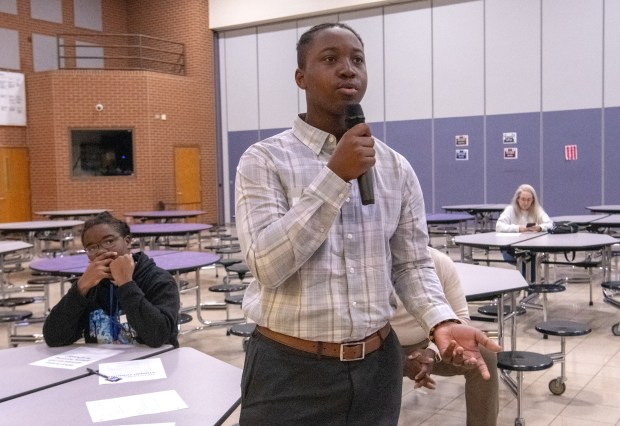
To the question of the election and education, the panelists agreed that it’s going to depend on who wins. Imani, for example, wondered who’s going to have students’ best interests at heart.
“I’ve heard that one of the candidates wants to take slavery out of the curriculum,” she said, referencing Presidential candidate Donald Trump’s threat to defund schools that teach about slavery. “This school has a lot of Black students, and that’s my history! I should be able to learn about where I came from.”
Another question, “Are there certain topics that should never be banned?” got a more tempered reaction, with the panelists deferring to their parents for some topics, such as LGBTQ+ issues.
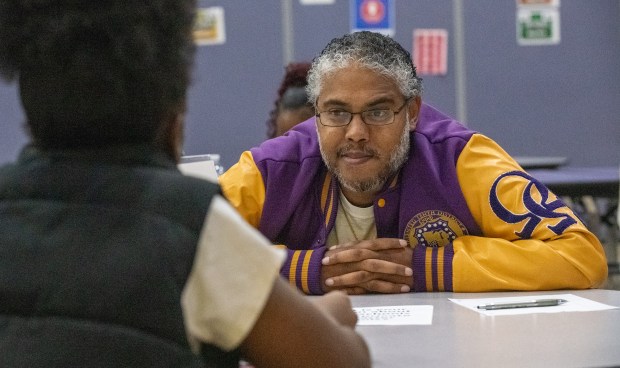
“Parents should have a say because maybe they don’t want their kids to be reading certain stuff at their age,” Amya said.
But “parental guidance” didn’t mean “banning” to them.
“Parents should think about letting kids have an open mind,” Hailey said.
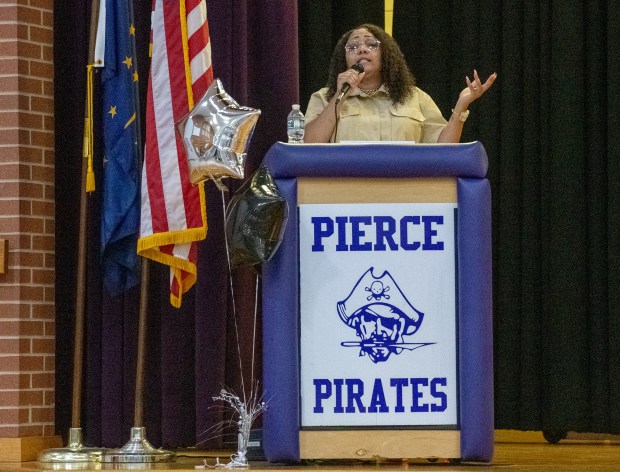
One of the questions on every Indiana teenager’s mind — the cell phone ban in schools — produced a contradiction among the panelists. They understand that phones are a distraction and even detrimental to some students’ well being; cell phones affect the way kids talk to others, and often, they don’t comprehend how they feel, and that’s how fights get started, Imani said.
Yet all five panelists believe there shouldn’t be a hard ban on them having the phones, instead being allowed to have them in their pockets or purses “just to know they have them safe instead of in their locker.”
“I think we should be able to have our phones on us,” Schuyler said.
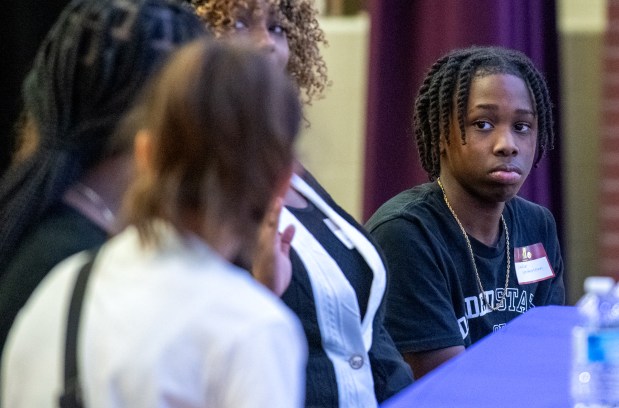
Bre’lle Marable, an eighth grader who participated in the roundtable discussion, said if she took one thing away from the event, it’s that the only constant thing is change.
“Change is going to happen, so you just have to learn to live with it,” she said.
Michelle L. Quinn is a freelance reporter for the Post-Tribune.


